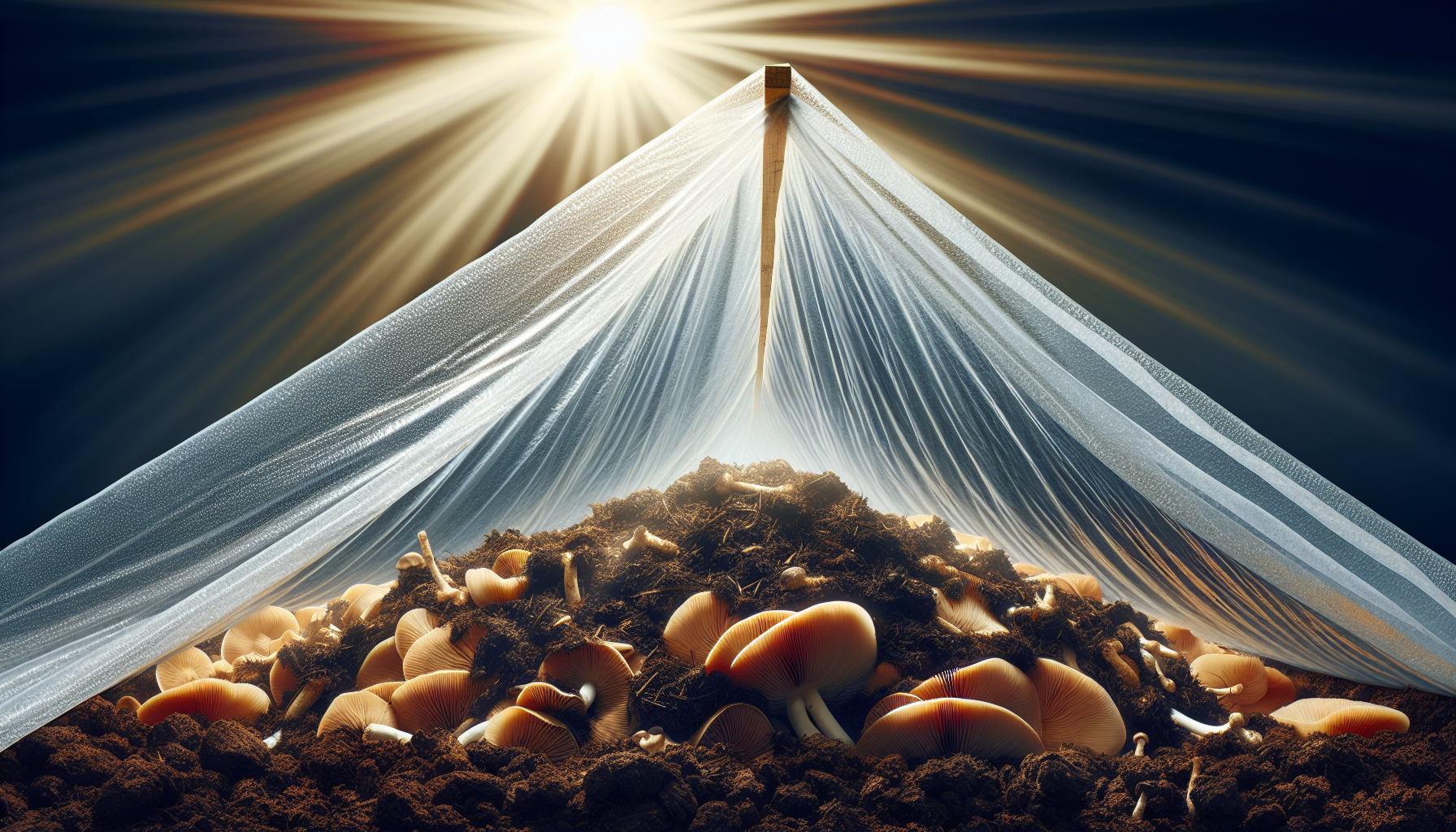Can I Use Natural Methods For Pasteurizing Mushroom Compost?
Introduction
Wondering if you can pasteurize mushroom compost using natural methods? In this article, we will explore different natural techniques you can use to pasteurize mushroom compost without the need for any harsh chemicals.
Understanding Pasteurization
Pasteurization is a process that involves heating a substrate to kill off any harmful microorganisms, pathogens, or unwanted organisms. By pasteurizing mushroom compost, you create a clean and sterile environment for mushroom growth, reducing the risk of contamination and ensuring healthy mushroom production.
Benefits of Using Natural Methods
Using natural pasteurization techniques offers several benefits, including:
- Eco-friendly: Natural methods do not involve the use of harsh chemicals that can be harmful to the environment.
- Cost-effective: Natural methods are often cheaper than using commercial pasteurization methods.
- Healthier mushrooms: By using natural methods, you can ensure that your mushrooms are free from any chemical residues.
Budget-Friendly Options
If you’re looking to pasteurize mushroom compost on a budget, natural methods are the way to go. You can easily find ingredients around your home or garden that can help you achieve the desired results without breaking the bank.

Get even more on composting with mushrooms.
Natural Methods for Pasteurizing Mushroom Compost
Let’s explore some natural methods you can use to pasteurize mushroom compost:
Solarization
Solarization is a simple and effective method of pasteurizing mushroom compost using the heat of the sun. By covering your compost pile with a clear plastic tarp and exposing it to direct sunlight for several weeks, you can raise the temperature of the compost to a level that kills off harmful organisms.
Steam Pasteurization
Steam pasteurization involves using steam to heat the compost to a high temperature, killing off any unwanted organisms. You can achieve this by setting up a steam generator or using a pressure cooker to create steam and heating the compost pile. This method is quick and efficient, ensuring that your compost is properly pasteurized.
Hot Water Pasteurization
Hot water pasteurization is another natural method that involves soaking the compost in hot water to kill off any pathogens. You can achieve this by submerging the compost in a large container of hot water for a specific period. This method is effective in pasteurizing large batches of compost quickly.
Best Practices for Natural Pasteurization
When using natural methods to pasteurize mushroom compost, it’s essential to keep a few best practices in mind:
Monitor Temperature
To ensure that your compost is properly pasteurized, it’s crucial to monitor the temperature throughout the process. Use a thermometer to check the temperature regularly and adjust as needed to maintain the desired level for effective pasteurization.
Maintain Proper Moisture Levels
Proper moisture levels are essential for the pasteurization process to be successful. Ensure that your compost is damp but not too wet, as excessive moisture can lead to anaerobic conditions and hinder the pasteurization process.
Allow Sufficient Time for Pasteurization
Natural pasteurization methods may take longer to achieve the desired results compared to commercial methods. Be patient and allow sufficient time for the compost to heat up and reach the desired temperature for effective pasteurization.
Ensure Even Distribution of Heat
Ensure that the heat is evenly distributed throughout the compost pile during the pasteurization process. Turn the compost regularly to ensure that all parts are heated evenly and that no areas are left untouched.

Troubleshooting Common Issues
While natural pasteurization methods are effective, you may encounter some common issues during the process. Here are a few troubleshooting tips to help you address these problems:
Mold Growth
If you notice mold growth on your compost during the pasteurization process, it may indicate that the compost is too wet. To address this issue, remove the excess moisture from the compost by draining it or adding dry materials to absorb the moisture.
Low Temperature
If the temperature of your compost isn’t reaching the desired level for pasteurization, check the moisture levels and adjust as needed. Increasing aeration by turning the compost more frequently can also help raise the temperature and ensure proper pasteurization.
Uneven Heating
Uneven heating can lead to ineffective pasteurization and the survival of harmful organisms. To address this issue, mix the compost thoroughly and ensure that it is evenly distributed within the container or pile. Consider breaking up large clumps to allow for better airflow and heat distribution.
Conclusion
In conclusion, yes, you can use natural methods for pasteurizing mushroom compost. By following the techniques outlined in this article and adhering to best practices, you can create a clean and sterile environment for healthy mushroom growth without the need for harsh chemicals. Experiment with different natural pasteurization methods to find the one that works best for you and enjoy a bountiful harvest of delicious mushrooms.

